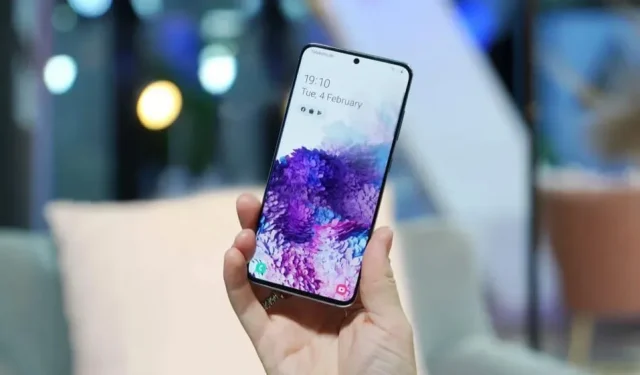Why Samsung stands out for its user privacy management

Samsung recently updated its user privacy policy. And it’s pretty scary, to say the least.
Samsung recently updated its privacy policy for all users with a Samsung account effective October 1st. The redditor went through these new rules, didn’t like what he read, and shared it all on r/android to highlight what he considers to be the worst parts of the document. The popularity of the branch skyrocketed, with Android users complaining loudly about the changes. But why exactly? Is there really cause for concern?
Samsung’s new rules are a little scary
These new rules seem very invasive right from the start. There is standard data that we expect to share: when you create a Samsung account, you enter your name, age, address, email address, gender, and so on.
But Samsung indicates that it also collects data such as your credit card information, your usernames and passwords for third-party services, your photos, contacts, message history, voice recordings if you use voice commands, and data. via Wi-Fi hotspots and other antennas). It may come as a surprise that the tech giant got all this information, but there’s a precedent: Apple was thrown into disarray when contractors revealed they could listen to audio recordings of Siri requests that included private conversations.
Samsung also tracks your activity through the use of cookies, pixels, web beacons, and more. The company says it does all of this for a variety of purposes, including remembering your information so you don’t have to re-enter it, and learning how you use her services. To do this, the company collects everything it can from your device, including your IP address, model, settings, sites you visit, apps you download, etc. These policies remind you to change your privacy settings if you do not want to be tracked in this way.
The company explains that this information has many uses: advertising, communicating with customers, improving services, business, preventing fraud and other criminal activity, as well as compliance with “local legal requirements.”In addition, Samsung reserves the right to share your information with “subsidiaries and affiliates”, “partners and third parties”, and authorities. In other words, depending on the circumstances, your Samsung data may end up in the hands of many third parties.
But that’s not all. Things get even worse in the “Information for California Residents”section. Although the information is almost identical, although presented differently, there is an additional note regarding the data collected: biometric information. The company won’t go into details, but it does imply that Samsung receives data from face scans and other fingerprints, although traditionally these data are stored on the device. Apple, for example, does not have access to your scans on your iPhone. This is potentially worrying.
In addition, the Residents of California section explains what data Samsung sells to third parties. Samsung says that in the 12 months before the new rules went into effect, it was able to sell your data, including your device data, purchase history, and online activity.
Nothing new from Samsung
All this is enough to make your teeth clench. The problem, however, is that none of this is really new. Most of the points are the same as in previous versions. In truth, if you look closely, Samsung hasn’t changed a thing.
However, these terms are intimidating. If you see your new Galaxy Z Flip differently now, we can’t blame you. Unfortunately, if you dive into the instructions for most of your other tech gadgets, you’ll be just as concerned. Samsung is not alone in collecting, sharing and reselling your data.
There are many violations of your privacy. Google has similar rules, but since Samsung runs Android, you have two recipient companies instead of one. For this reason alone, some will choose to buy a Google Pixel device.
Lock down privacy settings
On the other hand, Samsung offers really successful products and is probably the manufacturer that has been innovating the most lately. You can always buy its technologies that protect your privacy. Open your device’s privacy settings and turn off the maximum points. Do not agree to share your data, turn off tracking, block your account as much as possible. Samsung won’t let you block everything either, but you can do a lot better than the default setting.
Leave a Reply